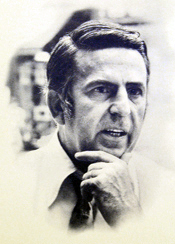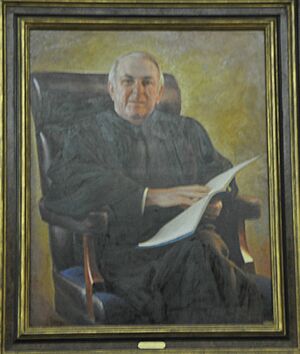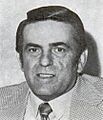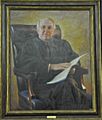Abner Mikva facts for kids
Quick facts for kids
Abner Mikva
|
|
|---|---|
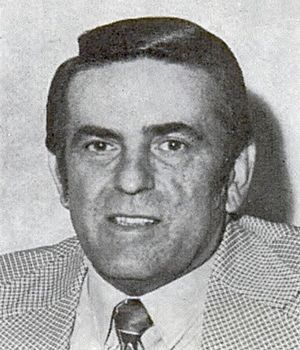 |
|
| White House Counsel | |
| In office October 1, 1994 – November 1, 1995 |
|
| President | Bill Clinton |
| Preceded by | Lloyd Cutler |
| Succeeded by | Jack Quinn |
| Chief Judge of the United States Court of Appeals for the District of Columbia Circuit | |
| In office January 19, 1991 – September 19, 1994 |
|
| Preceded by | Patricia Wald |
| Succeeded by | Harry T. Edwards |
| Judge of the United States Court of Appeals for the District of Columbia Circuit | |
| In office September 26, 1979 – September 19, 1994 |
|
| Appointed by | Jimmy Carter |
| Preceded by | Seat established |
| Succeeded by | Merrick Garland |
| Member of the U.S. House of Representatives from Illinois's 10th district |
|
| In office January 3, 1975 – September 26, 1979 |
|
| Preceded by | Samuel H. Young |
| Succeeded by | John Porter |
| Member of the U.S. House of Representatives from Illinois's 2nd district |
|
| In office January 3, 1969 – January 3, 1973 |
|
| Preceded by | Barratt O'Hara |
| Succeeded by | Morgan F. Murphy |
| Chair of the Illinois Human Rights Commission | |
| In office 2006–2009 |
|
| Preceded by | J. B. Pritzker |
| Personal details | |
| Born |
Abner Joseph Mikva
January 21, 1926 Milwaukee, Wisconsin, U.S. |
| Died | July 4, 2016 (aged 90) Chicago, Illinois, U.S. |
| Political party | Democratic |
| Education | University of Wisconsin, Milwaukee Washington University (BA) University of Chicago (JD) |
| Awards | Presidential Medal of Freedom (2014) |
Abner Joseph Mikva (January 21, 1926 – July 4, 2016) was an important American leader. He was a politician, a judge, and a legal expert. He belonged to the Democratic Party.
Mikva served in the United States House of Representatives for Illinois. He was also a federal judge appointed by President Jimmy Carter. Later, he worked as White House Counsel for President Bill Clinton. After his time in government, Mikva taught law at several universities. He also mentored future President Barack Obama and future Attorney General Merrick Garland. In 2014, President Obama honored Mikva with the Presidential Medal of Freedom.
Contents
Early Life and Education
Abner Mikva was born in Milwaukee, Wisconsin, on January 21, 1926. His parents, Ida and Henry Mikva, were Jewish immigrants from Ukraine. At home, the family spoke Yiddish. During the Great Depression, his father often did not have a job. The family sometimes needed help from welfare programs.
Abner went to public schools in his hometown. During World War II, he joined the United States Army Air Corps. The war ended just before he was sent overseas. Thanks to the GI Bill, which helps veterans with education, Mikva attended the University of Wisconsin–Milwaukee. He then transferred to Washington University in St. Louis. There, he met his future wife, Zorita Rose (Zoe) Wise. They both graduated in 1948 and soon got married.
The couple moved to Chicago, Illinois. Zoe encouraged Mikva to study law at the University of Chicago Law School. He earned his law degree in 1951. Abner and Zoe had three daughters: Mary Lane, Laurie, and Rachel. Mary became a judge in Illinois. Laurie teaches at Northwestern University. Rachel is a rabbi and professor.
A Career in Public Service
After law school, Mikva worked for Supreme Court Justice Sherman Minton. He then returned to Chicago and started practicing law. His law firm handled cases about workers' rights, real estate, business, and civil rights. They also did some criminal defense work.
Serving in the Illinois House
Mikva spent ten years, from 1956 to 1966, in the Illinois House of Representatives. This is a part of the state government that makes laws for Illinois.
Becoming a U.S. Representative
After losing his reelection in 1966, Mikva became a community activist. He then won election to the United States Congress in 1968. He served in the United States House of Representatives from 1969 to 1973 and again from 1975 to 1979.
Mikva was known as part of a group of independent Democrats. This group included other important politicians like Paul Simon. Mikva first represented Illinois's 2nd District. This area included parts of Chicago, like Hyde Park.
Political maps for elections sometimes change. This is called redistricting. In 1972, changes to the district maps made it harder for Mikva to win. He decided to move to a different area, the 10th District, to continue his political career.
He lost an election in 1972 but won again in 1974. He was reelected in 1976 by a very small number of votes. In 1978, he won again by only 650 votes. He joked that he had "won by a landslide."
Becoming a Federal Judge
President Jimmy Carter nominated Abner Mikva to be a judge on the United States Court of Appeals for the District of Columbia Circuit. This is a very important federal court. Despite some people opposing his nomination, the United States Senate approved him on September 25, 1979.
He served as a judge for 15 years, from 1979 to 1994. From 1991 to 1994, he was the Chief Judge of the court. Mikva used his experience as a lawmaker to help him make fair decisions.
One of his well-known decisions involved striking down a ban against gay people serving in the U.S. military. This decision was later overturned by a larger group of judges, but the ban was eventually removed by a presidential order. He also made a decision in 1982 that supported rules about air bags in cars.
In 1992, while he was Chief Judge, Mikva appeared in the movie Dave. He played a Supreme Court Justice in the film.
After His Time as a Judge
Mikva retired from being a judge in 1994. He then became the White House Counsel for President Bill Clinton. This job meant he was the President's top lawyer. He was the oldest person on the White House team at the time. He resigned in 1995 because the job was very demanding.
He then returned to teaching law at the University of Chicago Law School. While there, he became a mentor to Barack Obama, who would later become President of the United States. Obama awarded Mikva the Presidential Medal of Freedom in 2014. This is one of the highest honors a civilian can receive in the U.S.
Mikva also encouraged Obama to listen to preachers to learn about public speaking. He believed it helped Obama understand how to connect with people.
Other Important Work
Mikva also worked as a mediator, helping people resolve disagreements. He was involved with the Constitution Project, a group that studies the U.S. Constitution. In 2004, he traveled to Ukraine to observe their presidential election.
In 2006, the Governor of Illinois asked Mikva to lead the Illinois Human Rights Commission. In 2009, he led a group investigating the University of Illinois at Urbana-Champaign for admitting students who might not have been qualified, but whose families had connections to state lawmakers.
The Mikva Challenge
In 1997, Abner Mikva and his wife Zoe started an organization called the Mikva Challenge. It is a non-profit group that helps young people become active and informed citizens. Their goal is to encourage youth to promote a fair and equal society.
The Mikva Challenge has offices in cities like Chicago, Washington, D.C., and Los Angeles. They also work with partners across the country. The organization helps young people get involved in democracy. They work as election judges, volunteer for political campaigns, and advise city officials. They also create projects to improve their schools and communities.
Their motto is "Democracy is a Verb!" This means that democracy is something you do, not just something you have. As of 2020, the Mikva Challenge helps about 100,000 young people each year.
Later Years and Legacy
Abner Mikva passed away on July 4, 2016, in Chicago, Illinois. He was 90 years old and had been battling bladder cancer.
His important papers from his time in Congress and as a judge are kept at the Abraham Lincoln Presidential Library and Museum in Springfield, Illinois. In 1998, he received an award for his public service. In 2016, a Post Office in Evanston, Illinois, was renamed after him. Mikva had lived in Evanston and represented the area in Congress.
See Also
 In Spanish: Abner Mikva para niños
In Spanish: Abner Mikva para niños
- List of law clerks of the Supreme Court of the United States (Seat 3)
- List of Jewish members of the United States Congress
Images for kids
 | Toni Morrison |
 | Barack Obama |
 | Martin Luther King Jr. |
 | Ralph Bunche |


